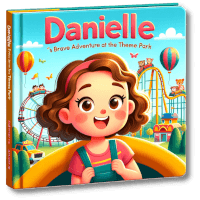Reading with children
a blog by Magic Tales

Understanding the Psychology of Disagreements in Children’s Literature
Introduction:
Children's literature has always been a medium to introduce budding young minds to the complexities of the world. One such intricate theme, often woven into these narratives, is the concept of disagreement. Far from being merely dramatic plot points, these disagreements offer rich insights into the psychology of conflict resolution, empathy building, and peer interaction.
The Genesis of Conflicts:
Disagreements are part and parcel of life. They appear as instances of conflict, introducing variations in the storyline and making the narrative more engaging for young readers. Authors often use such situations to illustrate an important life lesson. It helps children navigate disagreements in their real lives and teaches them the importance of compromise, negotiation, and alternative perspectives.
The Importance of Empathy:
Children's literature often demonstrates how characters empathize with each other during a disagreement, thus showcasing the importance of empathy in conflict resolution. For instance, consider ‘Charlotte’s Web’ by E.B. White, where the protagonists have different views on life and death but still manage to see from each other's perspectives. This provides an opportunity for children to understand and practice empathy.
Realistic Resolution:
Disagreements in children's literature often do not result in a unilateral victory for one party. It allows children to learn the act of acceptance in real-life scenarios, where not everything ends their way. It showcases the value of negotiation and compromise. For example, the book ‘Green Eggs and Ham’ by Dr. Seuss is a delightful depiction of persistently presenting your case and yet accepting it if the opponent is not convinced.
Conclusion:
Through its simple yet effective depiction of disagreements, children’s literature manages to convey essential lessons on empathy, acceptance, negotiation, and compromise. This is crucial for their emotional development and social interaction. So the next time your child picks up a book that features a disagreement, embrace it as an opportunity to discuss these significant life skills.
Want a personalized book to read with your child about Disagreements?
Takes as quickly as 30 seconds to create
Create a book about Disagreements

